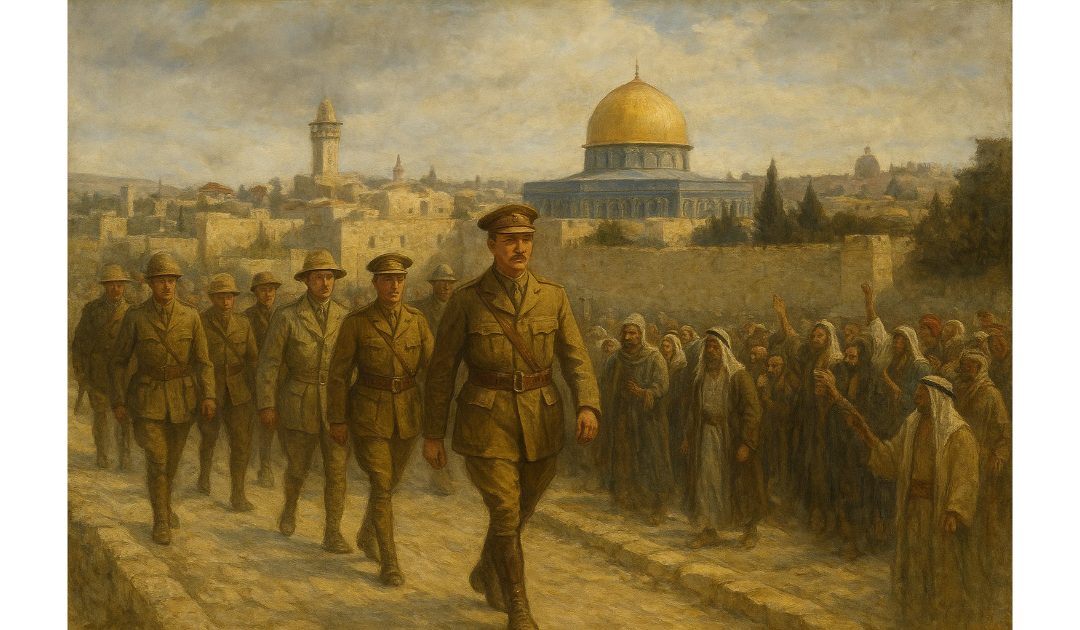On the 29th of October, 1941, over 10,000 Jews were massacred by German soldiers at the Ninth Fort in Kaunas, Lithuania. The holocaust was already well underway. In the wake of the holocaust it is virtually impossible to deny the right of the Jewish people to a homeland.
The Israelites established their united kingdom under King Saul around 1020 BCE. Internal and external pressures led to a split into Israel in the north, and Judah in the south. Around 722 BCE, the Assyrians conquered the northern kingdom, dispersing its inhabitants. Judah persisted until 586 BCE when the Babylonians, under King Nebuchadnezzar II, captured Jerusalem and destroyed the First Temple, beginning the Babylonian Exile. Israel was conquered by Persian King Cyrus the Great, the Greeks under Alexander the Great. The Maccabean Revolt in 167 BCE led to the establishment of the Hasmonean dynasty, a brief period of Jewish autonomy. But in 63 BCE the Romans arrived and annexed Judea as a province of the Roman Empire.
Although I associate the establishment of the current state of Israel with the holocaust, it is the end of the First World War that we should look at. General Edmund Allenby and T.E. Lawrence (“Lawrence of Arabia”) both played central roles in the British campaigns in the Middle East during the First World War, but their views on Palestine—particularly in the context of post-war settlement—were not identical. Allenby generally avoided making public statements about political arrangements for Palestine. He was aware of the Balfour Declaration (1917), in which Britain expressed support for a “national home for the Jewish people” in Palestine, but he left the political interpretation to London. Allenby was respected for treating Jerusalem with dignity (entering on foot rather than horseback), which was interpreted as sensitivity to religious and cultural issues. His main concern was stability and order in the territory. He wanted to avoid inflaming local tensions between Arabs, Jews, and Christians, particularly around Jerusalem’s holy sites.
Lawrence strongly supported Arab independence. He had promised Arab leaders, especially Sharif Hussein of Mecca and his son Faisal, that Britain would back their bid for a unified Arab kingdom after the war. Lawrence was uneasy about the Balfour Declaration and the idea of a Jewish national home in Palestine, since it conflicted with his assurances to the Arabs. He tried to balance the two positions. In 1919 at the Paris Peace Conference, he supported Emir Faisal’s claims to Syria and Palestine, while at the same time trying to reassure Zionist leaders that Arab–Jewish cooperation was possible. In his writings and letters, Lawrence admitted that Britain had made contradictory promises—to both Arabs and Zionists—and that this would cause long-term conflict. He foresaw Palestine as a flashpoint.
Also on the 29th of October, but in 1948, Israeli soldiers captured the Palestinian village of Safsaf in the Galilee. According to accounts from both survivors and Israeli soldiers, after the village had surrendered, a massacre unfolded. Israeli troops reportedly rounded up dozens of Palestinian men from the village. These men, who had already laid down their arms or were non-combatants, were then executed. Eyewitness testimonies describe scenes of brutal violence, with men being bound, shot, and buried in mass graves.
In addition to the killings, there were allegations of grave human rights abuses, including the rape of several women. The reports of these atrocities were not only passed down through Palestinian oral history but also documented in accounts written by Israeli soldiers and officials who were either present or informed of the events. These internal reports reveal the psychological toll such acts had on the soldiers themselves, with some expressing horror and guilt over what had transpired.
Allenby and Lawrence were clearly right about the tensions and the volatility around Palestine. I’m hoping that something good will happen in the region, on or around the 29th of October this year, but I’m not going to hold my breath.

